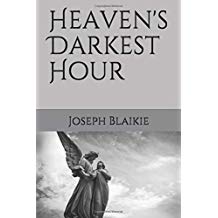|
A Victory, a Promise, and a Prophecy
The decision of Lot to dwell in the land of Sodom proved to be an ill-fated one. The nephew of Abram found himself swept up in a war between mighty kings. Abram came to the rescue of Lot and through the divine protection of God was able to defeat the kings. God restates his promise to Abram and offers a prophecy that foretells the Jews’ captivity and exodus from Egypt. Once you have read Genesis 14:1 through 15:21 you are ready to consider the three questions: 1. What does it reveal about God?
2. What does it reveal about us?
3. What does it reveal about God’s relationship with us?
Key Passage “Then Melchizedek king of Salem brought out bread and wine; he was the priest of God Most High. And he blessed him and said: ‘Blessed be Abram of God Most High, Possessor of heaven and earth; And blessed be God Most High, Who has delivered your enemies into your hand.’ And he gave him a tithe of all.” - Genesis 14:18-20 I know I mentioned part of this passage earlier, but it is significant in its totality. This is not the last time we will hear about Melchizedek. Take a moment to read Psalm 110. This Psalm was written by King David and it refers to Christ. He opens the Psalm with “The Lord said to my Lord”, which we can interpret as “God said to Jesus Christ”. David goes on to quote God: “The Lord has sworn and will not relent, ‘You are a priest forever according to the order of Melchizedek.” – Psalm 110:4. The writer of the book of Hebrews speaks of Melchizedek in describing Jesus: “This hope we have as an anchor of the soul, both sure and steadfast, and which enters the Presence behind the veil, where the forerunner has entered for us, even Jesus, having become High Priest forever according to the order of Melchizedek.” - Hebrews 6:19-20 This passages occurs as part of a wider discussion in Hebrews in which the writer (most likely Paul) firmly establishes what is known as the “New Covenant”. We are getting a bit ahead of ourselves here, as we have not yet reached the point in the story where the Mosaic Law and the Levitical priesthood have been established. The Mosaic Law and Levitical priesthood comprise what we know as the Jewish religion. But what the writer of Hebrews explains is that the Levitical priesthood never had the ability to bring about the fulfillment of salvation. It only points to the path of true salvation and that is Jesus Christ. Some have gone so far as to say that Melchizedek was actually an earlier physical appearance of Jesus. I hold to the view that Melchizedek was a foreshadowing of Jesus, which I believe is the point the writer of Hebrews is making. He was both a king and priest, as Jesus is. He ruled from Jerusalem, as Jesus will. He comes bearing bread and wine, which signify the elements of Communion that Jesus instituted. So in this passage we see a depiction what I would call the “True Covenant”, which is the promise of salvation that God made before Adam, Eve, and the Serpent. Melchizedek stands as a picture of the savior Jesus Christ and Abram stands as the faithful believer who is saved. Other Notable Points There is another key passage in this section: “Then He said to Abram: ‘Know certainly that your descendants will be strangers in a land that is not theirs, and will serve them, and they will afflict them four hundred years. And also the nation whom they serve I will judge; afterward they shall come out with great possessions.” – Genesis 15:13-14 This is another prophecy directly from God. He is describing future events that will be revealed in the book of Exodus, in which God delivers Abram’s descendants from slavery in Egypt. Final Thoughts
0 Comments
Leave a Reply. |
Joseph Blaikieis a Christian writer whose books include "Why You Don't Believe in God and Why You Should" and "You are Never Too Far Gone for God". To learn more about Joseph Blaikie visit: Amazon.com: Joseph J. Blaikie: Books, Biography, Blog, Audiobooks, Kindle To contact email jblaikie@jjbpost.com
Follow on Facebook and Twitter Archives
April 2024
|
 RSS Feed
RSS Feed










